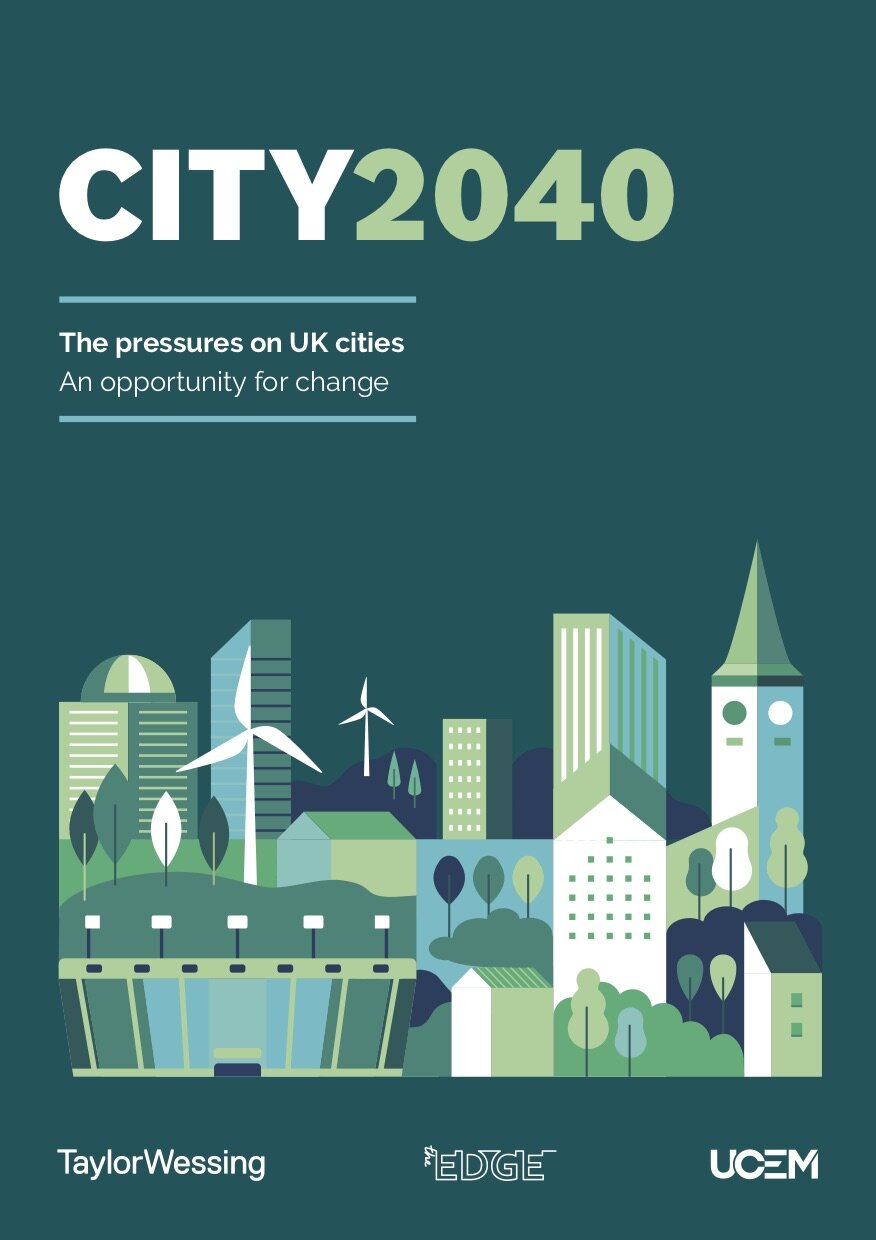City 2040
CITY 2040
City 2040: An exploratory industry-led research initiative, scrutinising the future UK city of 2040
THE EDGE’S research PROJECT, DEVELOPED in collaboration with TAYLOR WESSING and University College of Estate Management, sets out a vision of how UK CITIES can flourish amid changes that will benefit both the environment and the wellbeing of citizens.
The study aims to define a path for a thriving future City of 2040 and to consider what needs to happen, in terms of urban planning, government policy and investment strategy, in order for us to get there. The report's objectives aim to assist policy makers by setting out a shared vision for cities in 2040 and recommending a series of problem-solving approaches to support well-integrated city making with lasting benefits.
Harnessing ideas offered by 600 academics and experts, key elements of this vision include replacing single city centres with a number of smaller centres or "hubs" within a city's bounds, supporting the creation of localised areas with unique identities, plus doubling urban green space.
Access the full report here Access a Summary version
Our report focuses on four key topics, through which current and future socio-economic and environmental conditions are explored.
Equity and exchange
Rapid change in commerce and technology is demanding new strategies for how we organise our working and social lives, as well as how we interact with space. We look at how cities will flex to accommodate the people and commerce of the future, and how, by working together, there is real opportunity in greater equity for residents.
Public and private land: access and use
Research into the importance of private and public land suggests a city needs to think about health and inclusivity to be successful, when planning for urban spaces.
The research suggests a strengthening of civic rights and stewardship of urban green spaces, brought to the attention of the public like never before by the 2020 and 2021 lockdown measures.
Clustering and proximity
The third area of focus suggests how UK cities are structured could also change.
It is likely cities will densify and populations will continue to grow. Instead of building around a single city centre, growth will focus on a number of local centres with a multi-hub approach.
The impact of clean air
The way cities develop in the next 20 years offers an opportunity to reverse urban climate change impacts through joined up sustainable design.
Some of the key suggestions to achieve this include adopting circular economy principles, increasing green space and achieving clean air.
Taylor Wessing, the Edge and UCEM created the research to deliver for the first time a holistic vision, informing best practice for cities across the UK to support with government bodies and policy shapers, property investors and developers, space creators and curators. By identifying and interrogating the opportunities of City 2040, the groundwork is laid for a brave and bold new world.

